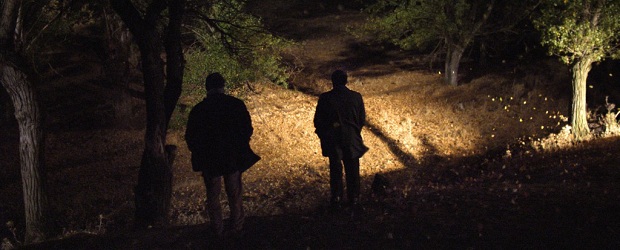CIFF: Once Upon a Time in Anatolia and Le Havre
By Steven Pate in Arts & Entertainment on Oct 13, 2011 7:45PM
 This is part of Chicagoist's coverage of the Chicago International Film Festival.
This is part of Chicagoist's coverage of the Chicago International Film Festival.
With the buzz for Once Upon a Time in Anatolia having long preceded its screening at this year's festival, Nuri Bilge Ceylan's laconic police procedural topped our list of most-anticipated films this year. It did not disappoint. This sprawling and subtle oddysey is masterful, frustrating, hypnotic, obscure, spare, insightful. A portrait of the language of boredom, Anatolia captivates in a new and uniquely cinematic way.
The tale of one night's search for a murder victim's body in the Anatolian countryside by three cars full of cops, a doctor, the district attorney, their functionaries, and a confessed murderer who can't seem to recall the exact spot, Once Upon a Time in Anatolia may demand more attention than any other film this year. the long takes, expanses of silence, low-lighting may demand that you properly caffeinate before watching, but there are rewards in store. Most of life is what happens in the time you think you are killing between significant events, and this movie operates in that space: the cops discuss prostate issues with the doctor, a local host for a pre-dawn snack bugs the government man about civic improvements, somebody nods off... Nevertheless each episode, each conversation, each glance reveals something new and deeper about the characters, and often about the socio-economic strata of modern Turkish society. Ceylon may have stripped his work of a whodunit's narrative crescendo, but the final daytime coda to the whole frustrating ordeal has no shortage of clues and discovery.
Ceylon's absolutely stunning compositions brought us right inside these painterly landscapes, and we're not sure there has ever been as evocative nighttime movie. Yet it is the blend of themes universal and the particular which kept us in the palm of his hand for 157 minutes. Abundant black comedy girds a skewering of the bureaucratic appendages of modern life, such as when the whole exhausted, punch-drunk crew cracks up as the district attorney, dictating the deceased's condition, says he looks like Clark Gable and then (in extreme closeup) awaits the compliments that no, he looks like Clark Gable to which he blushes as if on queue. The contours of the characters' overlapping loyalties are probed and tested, their compromises rationalized and sadly acknowledged, their papering over of their faults exposed, all with a subtlety that belies its depth.
Once Upon a Time in Anatolia screens tonight at 6:10 p.m.
We wouldn't know what to say to someone who claimed to love movies but who did not enjoy Le Havre. We suppose we'd merely hope it boiled down to a difference of opinion about what the word "movie" means. The sets of Le Havre were dressed by someone with a cargo ship full of handsome mid-century modern furniture and the sensibility on display harkens back to a plainspoken optimism from that era as well, filtered through French poetic realism and lit with a humanistic glow. Kaurismaki's gentle tale of a shoeshiner who collaborates with his friends and neighbors to shelter an illegal immigrant from Africa and then try to reunite him with his family in London marries the director's characteristic offbeat coolness with a heartwarming and even crowd-pleasing subject. Without denying the world's abiding harshness, Karuismaki insists human nature is fundamentally and matter-of-factly good. Art which, however briefly, can convince you of this is always worth seeking out. While it will surely lack the splash of The Man Without a Past, the Finnish master has made something at least as special. Le Havre has already screened at CIFF, but since Janus picking up U.S. distribution, we'll expect it in theaters before too long.